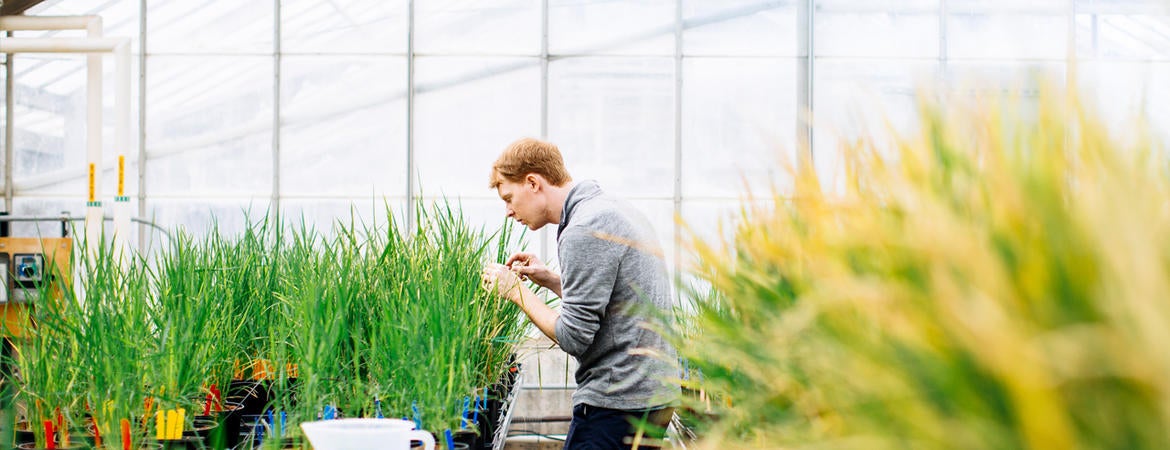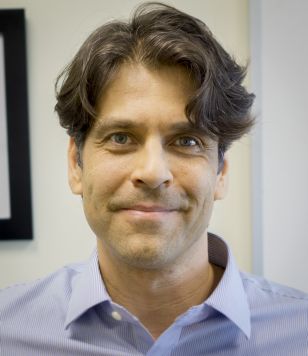
Sean Cutler, a professor of plant cell biology at the University of California, Riverside has been elected a member of the National Academy of Sciences (NAS) for his scientific research on small molecules that enable plants to withstand drought.
Membership in the NAS is one of the highest honors given to a scientist or engineer in the United States. Cutler learned of his election on Tuesday, May 1, during the academy’s 155th annual meeting in Washington, D.C.
Cutler is being recognized for pioneering the use of chemistry and genetics to define genes and manipulate the resiliency of plants to drought. His fundamental work led to the identification of receptors for the plant hormone abscisic acid, which helps protects plants against drought stress. He subsequently built on this discovery to develop synthetic hormone mimics and other chemical tools that can be used to improve drought tolerance and reprogram plant physiology to deliver improved water productivity or “more crop per drop.”
“Sean Cutler's election to the National Academy of Sciences reflects his creative use of chemical biology to unravel important biochemical signaling processes in plants,” said Cynthia K. Larive, UCR provost and executive vice chancellor. “His elegant work to characterize the abscisic acid receptor is also of great practical importance and could lead to the development of new agricultural technologies that help plants better withstand drought.”
Michael Pazzani, UCR vice chancellor for research, affirmed the great potential for less thirsty crops, which Cutler’s research makes possible. “The translational impact of Sean’s work will impact future agricultural practices. He has made our UCR community very proud with this well-deserved recognition.”
Elected along with 83 other new members and 21 foreign associates, Cutler brings the number of current UC Riverside faculty elected to the NAS to nine. He joins Julia Bailey-Serres, Xuemei Chen, Natasha Raikhel, Susan Wessler, Janet Franklin, James Dieterich, William Jury, and Alexander Raikhel, all members of the College of Natural and Agricultural Sciences.
Bailey-Serres, Chen, Franklin, Natasha Raikhel, Wessler, and Cutler are also part of UCR’s Department of Botany and Plant Sciences and Center for Plant Cell Biology, and, along with Alexander Raikhel, the Institute for Integrative Genome Biology.
“Dr. Cutler’s research has transformed our understanding of the plant’s strategy to survive when fresh water is limited, one of the greatest challenges to global food security”, noted Bailey-Serres, distinguished professor of genetics and director of the Center for Plant Cell Biology, which seeks to meet global challenges such as improved nutrition, increased crop yield, and resistance to pests through molecular plant biology research.
Natasha Raikhel, a distinguished professor emerita and former director of the center, also praised Cutler’s cutting-edge work.
“Sean is a brilliant scientist and thinker, and I admire him for this,” Raikhel said.
A graduate of the University of Toronto with a doctorate from Stanford University, Cutler has been a member of the UCR faculty since 2007.
The NAS is a private, nonprofit society of distinguished scholars. Established in 1863, the NAS is charged with providing independent, objective advice to the nation on matters related to science and technology. Scientists are elected by their peers to membership in the NAS for their outstanding contributions to research.
There are currently 2,382 active NAS members and 484 foreign associates. Among the organization’s renowned members are Albert Einstein, Robert Oppenheimer, Thomas Edison, Orville Wright, and Alexander Graham Bell. Nearly 200 living NAS members have won Nobel Prizes.




